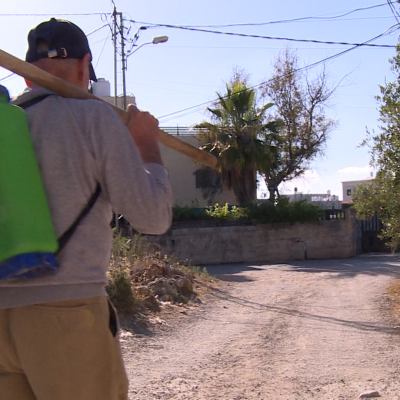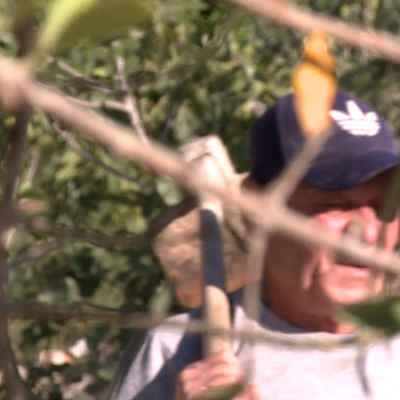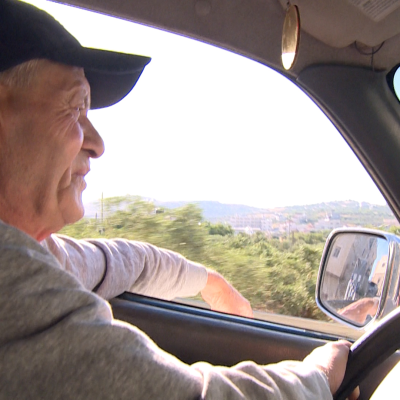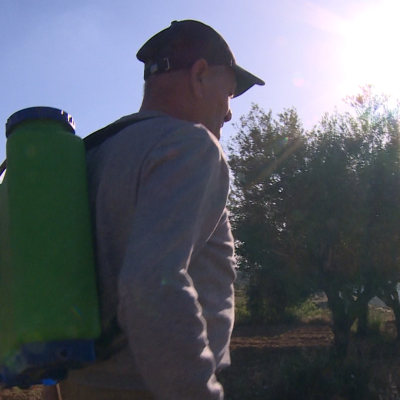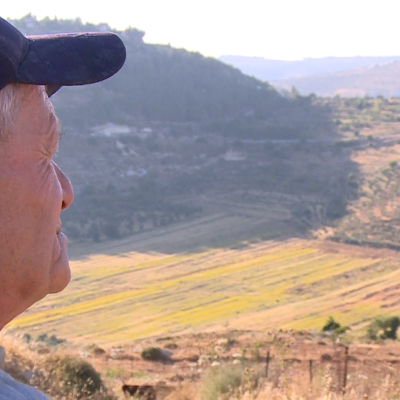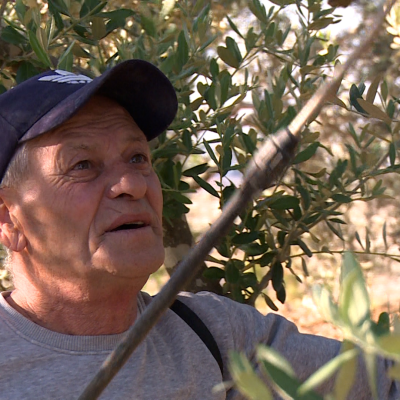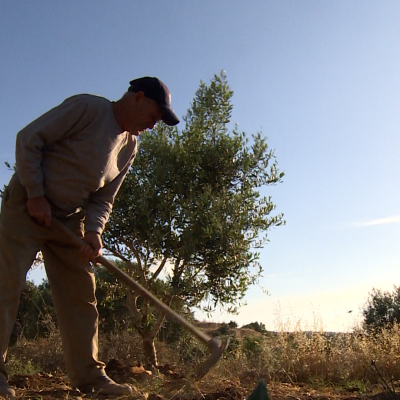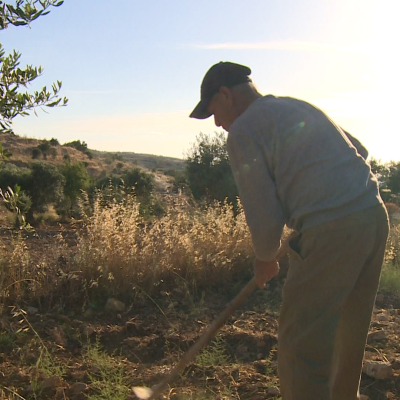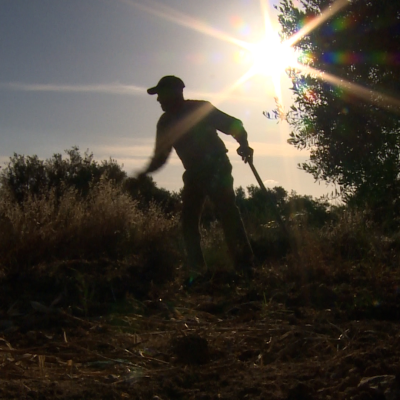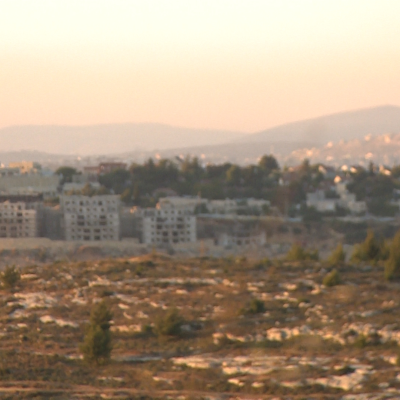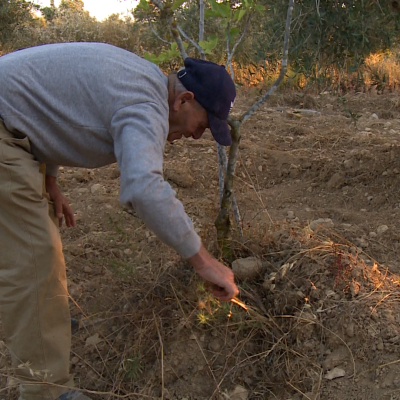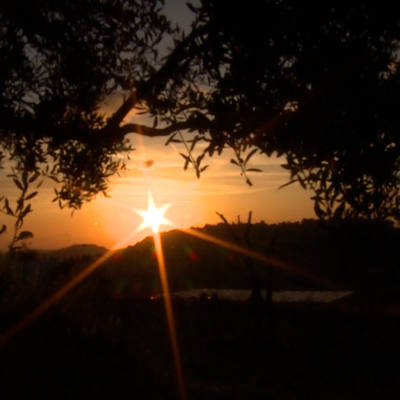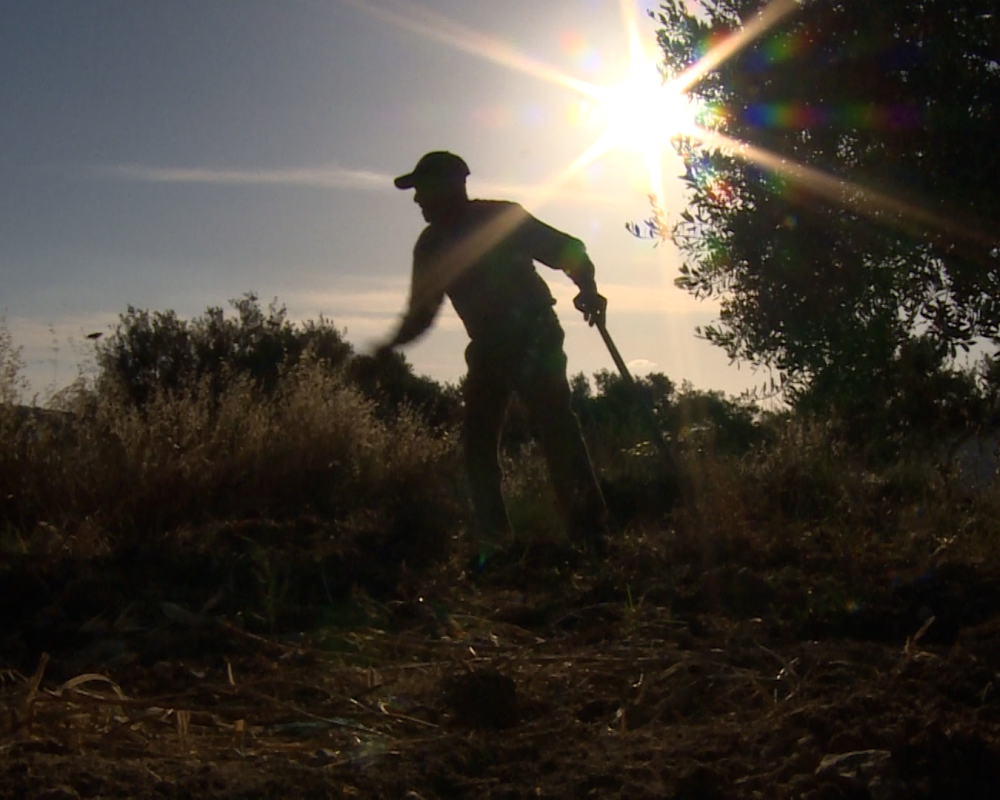
Ramallah / PNN - Wasal Abu Alia and Mohammed Noufal
In his childhood, he used to accompany his father or follow him to their olive grove after school. He carried water in his hands, walking four kilometers to water the trees, demonstrating his deep attachment to the land. Now, at 67 years old, Rabhi Ghafari Abu Rami from Sinjil, north of Ramallah, remains steadfast in his devotion.
Sinjil, located 21 kilometers from Ramallah, has a population of 7,500 and encompasses 14,000 dunams of land. Most of this land is classified as Area C, subject to zoning plans that have significantly reduced the available land. The residents mainly work in trade and agriculture.
Who is Rabhi Ghafari?
In 1990, Ghafari was arrested by Israeli forces and sentenced to life imprisonment for his involvement in the First Intifada. He spent four years in Israeli prisons and was released following the Oslo Accords. With the establishment of the Palestinian Authority in Gaza and Jericho, he was placed under house arrest in Jericho for two years. After the authority moved to Ramallah, he joined the Preventive Security Force until 1998. He then retired following a decree from the late President Yasser Arafat and dedicated himself fully to working on and defending his beloved land.
Ghafari's Struggle Against Settlements
Now in his sixties, Ghafari clings to patience as he leans against an olive tree in his remaining land. He looks with sorrow at the settlements built on the town’s lands, with over thirty dunams confiscated from him and his brothers in areas like Al-Rummana, Ras Al-Aqaba, and Abu Al-Ouf. Hundreds of additional dunams have been seized from other residents for settlement expansion.
Ghafari states that these lands have become military zones, barring entry and access. The town is surrounded by five settlements, including Ma'ale Levona and Eli, along with numerous outposts. He noted that new outposts have been established, some just two months ago, with the intensity of settlement activity increasing since October 7.
Targeted by Settlers
Detailing his direct confrontation with the settlements, Ghafari explains that settlers have attacked his remaining land four times, uprooting olive trees repeatedly. In one instance, they broke the trees and sprayed them with harmful chemicals. After each assault, he replanted the olive trees, planting around 50-60 trees in his latest act of defiance, ensuring he took extra care of his land.
He reiterates, “God willing, I will remain alive, and I will remain a thorn in the settlers' sides.”
He asserts, “I have come to recognize the settlers who commit these attacks due to their frequent presence on my land.”
Filed Six Complaints Against Settlers and Authorities Registered Them as "Unknown"
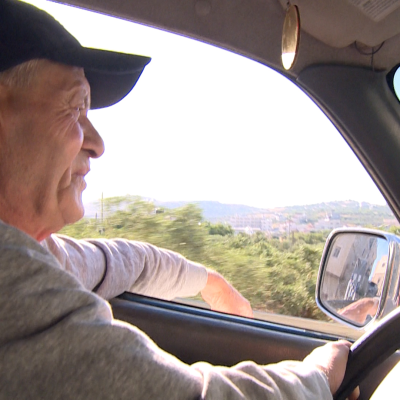
Rebhi Ghafari, a resident of Sinjil, has filed six complaints against settlers and the Israeli occupation authorities. Each time settlers attacked his land, he reported the incidents to the Sinjil Municipality, which in turn contacted the relevant authorities. Ghafri brought photographic evidence, including images of the settlers' vehicles and their license plates, as well as documentation of the damage done to his olive trees. Despite his efforts, the investigations were always closed with the cases registered against unknown perpetrators, except for one pending complaint.
Supporting Farmers' Resilience
Ghafi recounts how the Agricultural Relief Committee provided him with a fence and poles to protect his land. However, when he attempted to install the fence, settlers threatened to kill him and destroy his work. The settlers, under the protection of the Israeli army, repeatedly returned to threaten him and vandalized the fencing by cutting multiple holes to facilitate their entry.
Confrontations with Settlers
In another instance, Ghafari coordinated with the Red Cross and relevant authorities to access his land. Despite this, around 20 settlers, including one who had threatened him in 2013, attacked him and his companions. The Israeli army did not intervene. The confrontation resulted in four injuries: Ghafari was struck on the head with a gun, another individual had his hand broken, one person was stabbed in the shoulder with a screwdriver, and another was hit on the head with a gun.
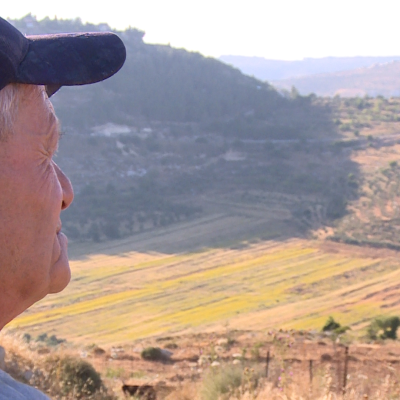
The Importance of Land
Ghafari emphasizes the profound importance of the land, noting that their struggle with the occupation is fundamentally about the land itself.
Diverse Settlement Strategies
Ghafi highlights that pastoral settlement has become increasingly common. Settlers bring flocks of sheep and cattle onto Palestinian agricultural lands, including olive groves, causing significant damage. They also assault farmers during the olive harvest, steal crops, and prevent access to the land, often claiming military necessity.
Other methods include burning homes, attacking residents, torching vehicles, uprooting crops, spraying harmful chemicals, and seizing land.
The Objective of the Occupation and Settlers
Ghafari asserts that the goal of these actions is to pressure Palestinians into leaving their land and country. He resolutely states, "We will not raise the white flag or surrender. Our attachment to the land is a testament to our rights and our defiance against the occupiers, whose end is inevitable."
Rabhi Ghafari's story is a powerful testament to the resilience and steadfastness of Palestinian farmers in the face of ongoing aggression and displacement efforts by settlers and the Israeli military. His unwavering commitment to his land symbolizes the broader struggle for justice and sovereignty in the occupied territories.
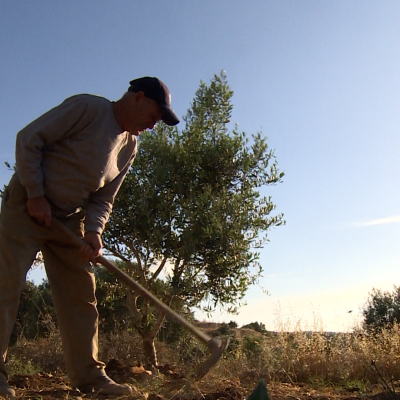
The Olive Harvest: A Season of Family and Resilience
Rabhi Ghafari explains that each time he reaches his olive grove, he thanks God for arriving safely, and when he leaves, he bids it farewell, uncertain if he will be able to return. Last season, 22,000 olive trees were inaccessible to their owners for harvesting due to restrictions.
For the 67-year-old Ghafari, the olive harvest is a cherished family tradition. "The olive season is a time for family gatherings," he says. "I have five children and several grandchildren. We all participate in picking olives and eagerly await the season. You can see the youngest holding a comb, another one on the ladder, and others picking the olives. Afterwards, we cook over an open fire and treat the harvest as a family outing."
Ghafari concludes his interview with PNN at sunset, after a day spent with the network team on his land, by emphasizing his message to his children and grandchildren. He asserts that his steadfastness and dedication to his land is the true legacy he wants to pass on to them, ensuring they remain connected to their heritage and their olive trees.
This story was produced as part of the "Qareeb" program implemented by the French Media Development Agency (CFI) in partnership with and funded by the French Agency for International Cooperation.
